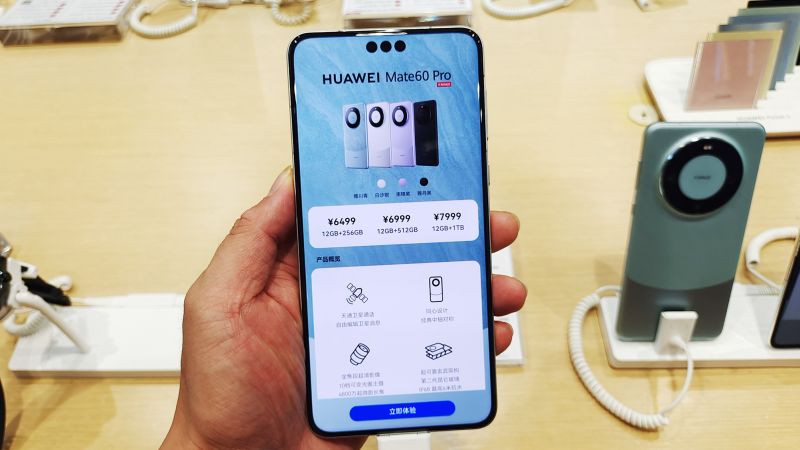The US government is investigating China's breakthrough smartphone
The US government is seeking more information about the Huawei Mate 60 Pro smartphone, particularly its advanced chip, to determine if American restrictions on semiconductor exports were bypassed.
